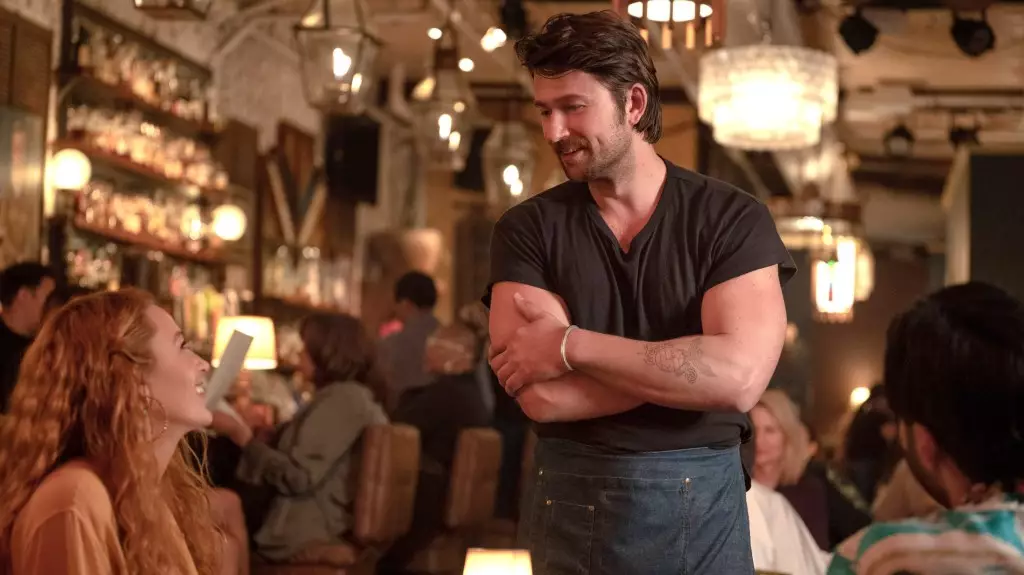The entertainment industry is no stranger to allegations of misconduct and the ensuing fallout that accompanies them. In a recent incident that has captured the attention of both audiences and industry insiders, Brandon Sklenar, a rising actor, has publicly urged fans and followers to educate themselves on serious claims made by his co-star Blake Lively against filmmaker Justin Baldoni. These allegations, released as part of a formal complaint, outline a pattern of alleged sexual harassment and a troubling backstage culture, sparking dialogues about gender dynamics and accountability in Hollywood.
Brandon Sklenar’s call to action came via social media, where he highlighted an 80-page complaint filed by Blake Lively that details troubling incidents throughout the production of their film, It Ends With Us—a movie adapted from Colleen Hoover’s acclaimed novel focusing on domestic violence themes. Lively’s claims reveal a disturbing environment that allegedly jeopardized the film’s production due to Baldoni’s behavior, which she describes as abusive and invasive. Not only does the complaint recount on-set interactions that made Lively uncomfortable, but it also portrays an orchestrated campaign of retaliation allegedly involving Baldoni and his team in response to her raising red flags.
The allegations are notable for their breadth, involving claims of inappropriate comments, unwanted physical contact, and breaches of personal boundaries, like walking in on Lively in her trailer—a setting that should evoke professionalism and safety rather than anxiety and fear. In an industry often romanticized, this sobering account forces an examination of behaviors that many have come to accept as part of the ‘business as usual’ mentality in Hollywood.
The fallout has prompted a wave of public support for Lively from various members of the entertainment community. Noteworthy figures, including her sisterhood co-stars and popular personalities such as Gwyneth Paltrow and Amy Schumer, have come forward in solidarity. This collective response highlights a burgeoning culture that prioritizes advocacy and empowerment over silence, encouraging a shift in the way misconduct is approached and handled.
Sklenar’s stance echoes sentiments that have gained ground over recent years, where supporting and believing victims has become central to the conversation surrounding sexual misconduct. His Instagram post, which included the message, “FOR THE LOVE OF GOD READ THIS,” serves as a clarion call, emphasizing the urgency of understanding the complexities of such allegations beyond mere headlines.
In the wake of Lively’s allegations, the repercussions for Baldoni have been swift and severe. Major representation, such as his agency WME, has severed ties with him, a move that signals a clear stance against the behavior described in the complaints. This incident highlights an essential element of accountability in Hollywood that has often been skirted around; it poses the question of how talent can be protected and how a culture of intimidation can be dismantled.
Furthermore, the revocation of Baldoni’s Voices of Solidarity Award—a recognition previously presented as an emblem of support for women—underscores the intricacies and dualities present in Hollywood’s response to misconduct. This contradiction illustrates the complications in attempting to reconcile personal accolades with public behavior, especially in environments predicated on trust and mutual respect.
The ongoing discourse surrounding Lively and Baldoni reflects a significant moment in Hollywood’s reckoning with allegations of misconduct. As public figures respond and industry practices evolve, the hope is for a cultural shift that allows for a more transparent dialogue on gender dynamics. However, it also raises the question: will this light continue to shine bright, or will we find ourselves reverting to the shadows of silence?
The importance of continuing this conversation cannot be overstated. As audiences, we are not merely passive consumers of entertainment; we must engage and critically analyze the industry we support. Lively’s experiences are not isolated but reflective of broader systemic issues faced by many women in various professions. The call to read, to understand, and to support is more than an instruction—it’s an invitation for vigilant advocacy against the undercurrents of harassment that continue to permeate our cultural fabric.



Leave a Reply